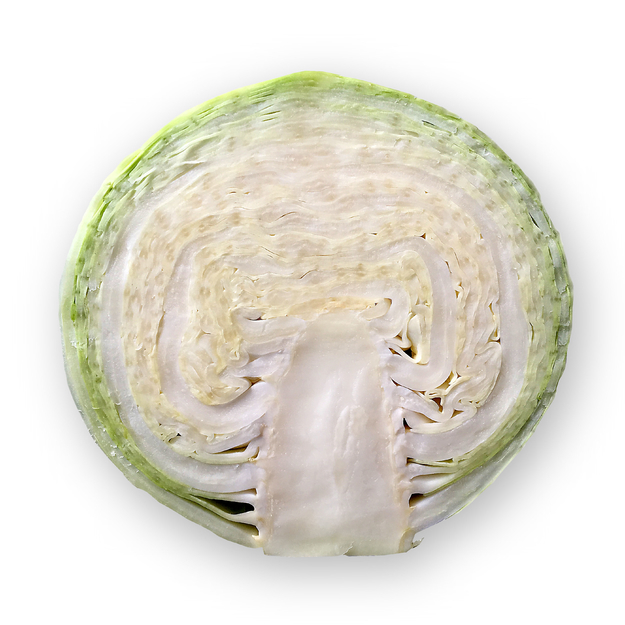In most of the European languages, the word cabbage comes from the Latin word caulis (stem of a cabbage), which derives from an Ancient Greek word καυλός (which means stalk, stem or dickhead). That languages are: the Italian: Cavolo, Spanish: Col, French: Chou, Finnish: Kaali, Danish: Kål, Swedish: Kål, Dutch: Kool. But in case of Kool, it may also came from Middle Dutch col, cole which is not based the Latin word collum ‘’neck’’.
On the other hand, the English word, Cabbage comes from the Latin word caput (head or knob-like protuberance). There is also another language that its word cabbage derives from the Latin caput and that is the Croatian (Kupus).
In German, Kohl, comes from the word kōlo a Proto-Slavic word (cycle or wheel). In Brazilian and European Portuguese the cabbage is Repolho, based on the spanish word repollo (cabbage), which comes from Latin the word pullus (sprout of a plant), or from the verb repollar (to grow cabbages).
In Czech, Zelí comes from Proto-Slavic zelь (green plant, herb). The Bulgarian, зеле, and Yugoslavian, зелка, are based on that Czech word zelí.
The origins of the Russian, Polish, Ukrainian, Κаπусτа as well as Slovak, Kapusta, are not very clear. The 3 possibilities are 1) by contamination of the Latin compositum (from the Latin caput), 2) by contamination of the Latin word caputina (cabbage) and compositus (denoting the folding of the leaves), 3) by the name of the plant from Latin language, compos(i)ta (also means mixed).
In Serbian, Croatian and Serbo-Croatian (Bosnian- kupus): Kупус, from German Kappus (cabbage) and from Old Serbo-Croatian (Kajkavian) kupust (from Latin composita). In Hungarian: káposzta (from Latin composita).
In Greek: Λάχανο, (lahano) in ancient Greek was the word for the all edible and cultivated vegetables. It comes from the word λαχαίνω (dig), referring to all plants that you need to dig in order to grow them. In Turkish, they use the word Lahana, the plural of the Greek word Λάχανο.
